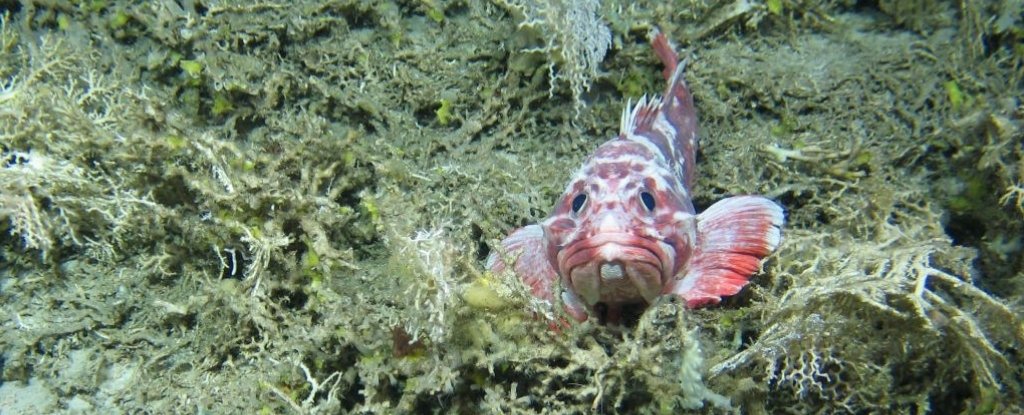
Posted on 12/30/2020 8:40:28 AM PST by Red Badger

Fish and hydrocorals. (University of Edinburgh)
================================================================
It's taken nearly five years, 45 research expeditions, and more than 80 scientists and students, but the largest oceanic research enterprise, the ATLAS project, is officially complete.
Exploring 12 locations in the deep northern Atlantic, the project has set a gold standard for future marine research.
Driving underwater robots to areas never before explored, researchers have uncovered a dozen newly identified species, including fish, cold-water coral and other invertebrate sponge species. Not to mention the discovery of 35 known species in previously unknown areas.
Already, the results have produced 113 peer-reviewed papers, with 98 more soon to follow.
Among the new findings is a type of coral growth, known as Epizoanthus martinsae, which thrives on black corals over 400 metres deep (1,300 feet).
Other discoveries include a type of sedentary animal resembling moss, called Microporella funbio, which was found in an undersea mud volcano off the coast of Spain.
Another moss-like animal, named Antropora gemarita, was also found filtering and feeding particles of food drifting in the deep sea.
The project and its findings are unrivalled and speak to how much the deep ocean still has to offer. Yet without healthy, deep-sea ecosystems, these newly discovered species will no doubt struggle to survive.
"As the birthplace of deep-sea biology and the cradle of oceanography, the North Atlantic is the place we should know best," says Murray Roberts, the ATLAS coordinator, "but only in the last 20 years have we uncovered how varied and vulnerable its deep-sea habitats really are."
In fact, scientists today say we know more about the surface of the Moon and Mars than we do of the deep Atlantic, and that's a serious problem.
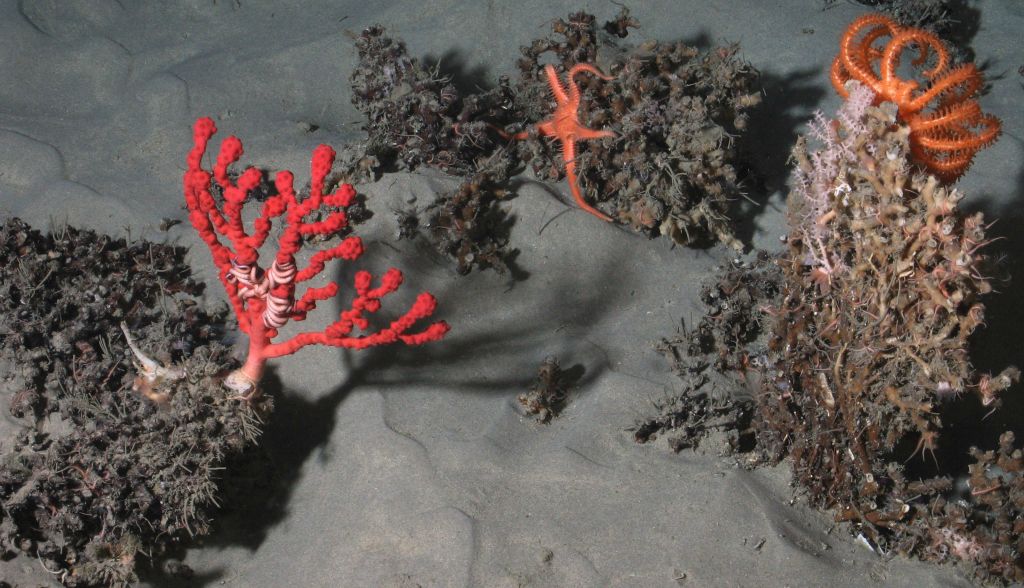
Cold water corals and seastars. (French Research Institute for Exploitation of the Sea)
===============================================================
Sponges and corals may not seem like important animal species in the grand scheme of things, but in the deep sea they form the foundation for most ecosystems.
Marine biologists actually refer to them as the 'cities' of the deep, providing food and shelter for many more types of fish.
In a rapidly changing world, however, these remote ecosystems appear particularly vulnerable to human activity.
Despite their name, black corals are not always black, and while they do not bleach with high temperatures like shallower corals, climate change is still their biggest threat.
Given their propensity for growing in the deep, we still have very little information about these corals' conservation status, which means they could go extinct before we even find them. The same goes for any deep sea species they support.
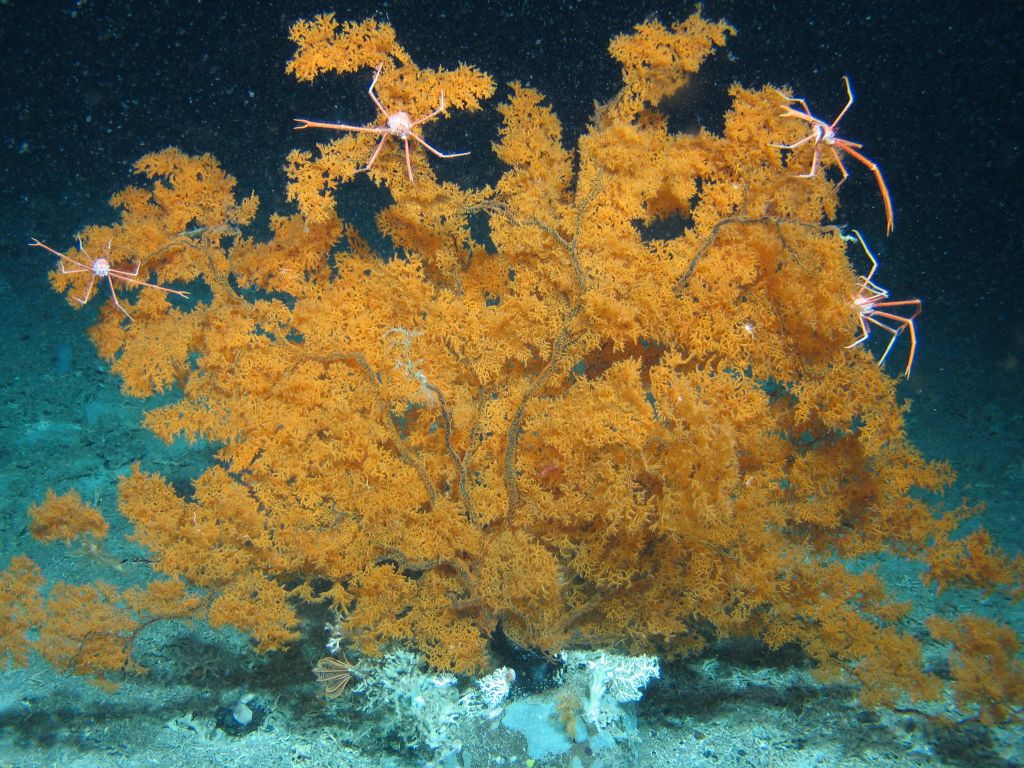
Black coral and crabs (University of Edinburgh)
===================================================================
"If those cities are damaged by destructive human uses, those fish have nowhere to spawn and the function of those whole ecosystems is lost for future generations," Roberts told the BBC.
Oceans absorb up to a third of the carbon in our atmosphere, and research from the ATLAS project suggests half of all cold-water coral habitats are at risk from warming temperatures.
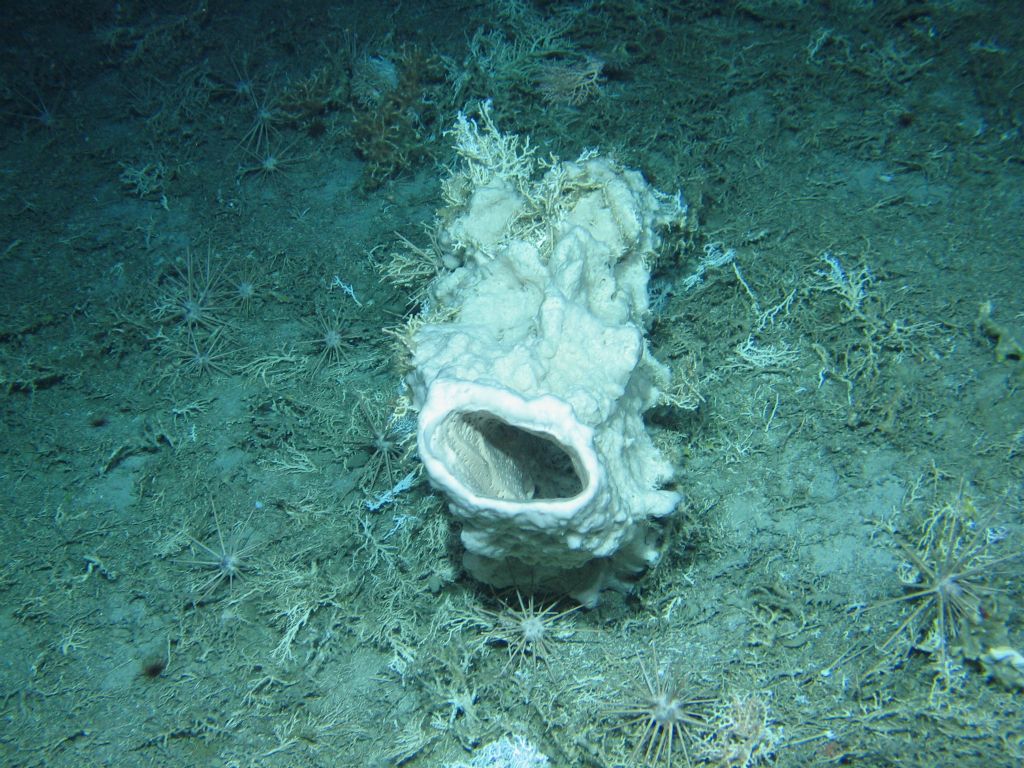
Sponge and sea urchins. (University of Edinburgh)
=============================================================
Nor is that the only threat faced by these deep sea communities. The ATLAS project found ocean acidification and fishing could also place nearly 20 percent of deep water ecosystems at high risk.
Acidification is one of the most disastrous outcomes for corals, corroding the skeleton of these reefs almost like osteoporosis in humans.
"That's attacking the very foundations of huge deep-sea coral reefs," Roberts explained to ABC News Australia.
"Predictions are showing the suitability of the habitats really collapsing over the next 100 years."
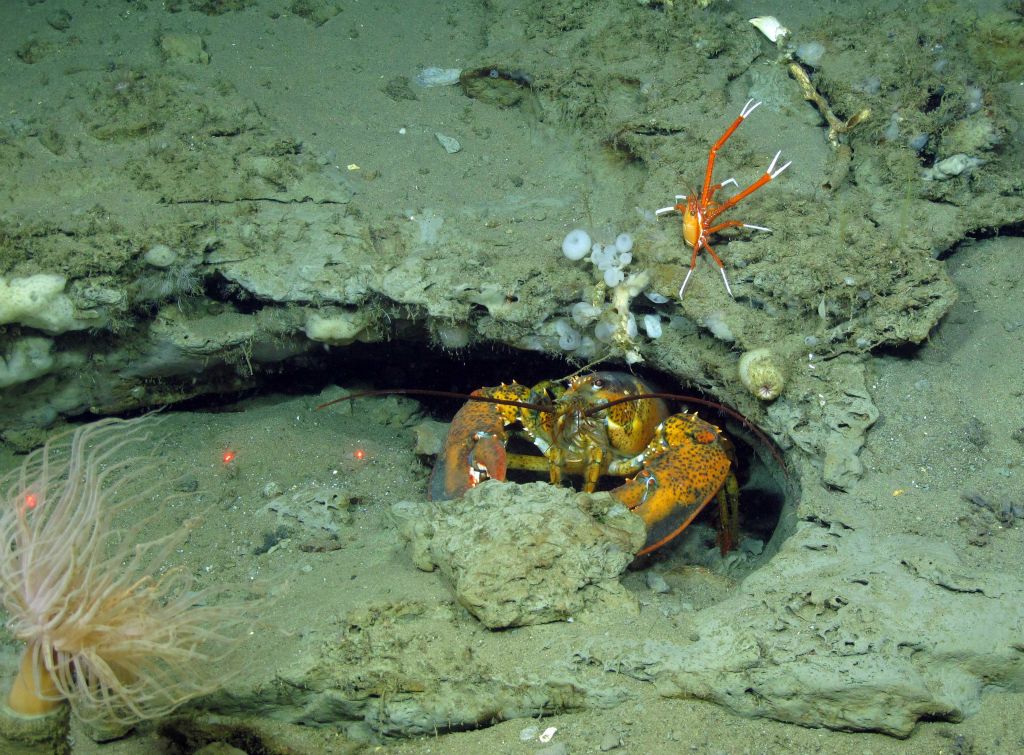
American lobster and squat lobster at Baltimore Canyon. (Steve Ross)
==================================================================
Even the major currents of the Atlantic are slowing with climate change, and this means the warm, salty water usually carried to the north is taking longer to cool and sink, possibly causing sea levels to rise or changing global weather patterns. It could also impact the resources deep sea ecosystems are able to access.
"Everyone knows how important it is to look after tropical rainforests and other precious habitats on land, but few realise there are just as many, if not more, special places in the ocean," says Roberts.
"In ATLAS we've studied most vulnerable ecosystems in the deep Atlantic and we now understand how important, interconnected and fragile they really are."
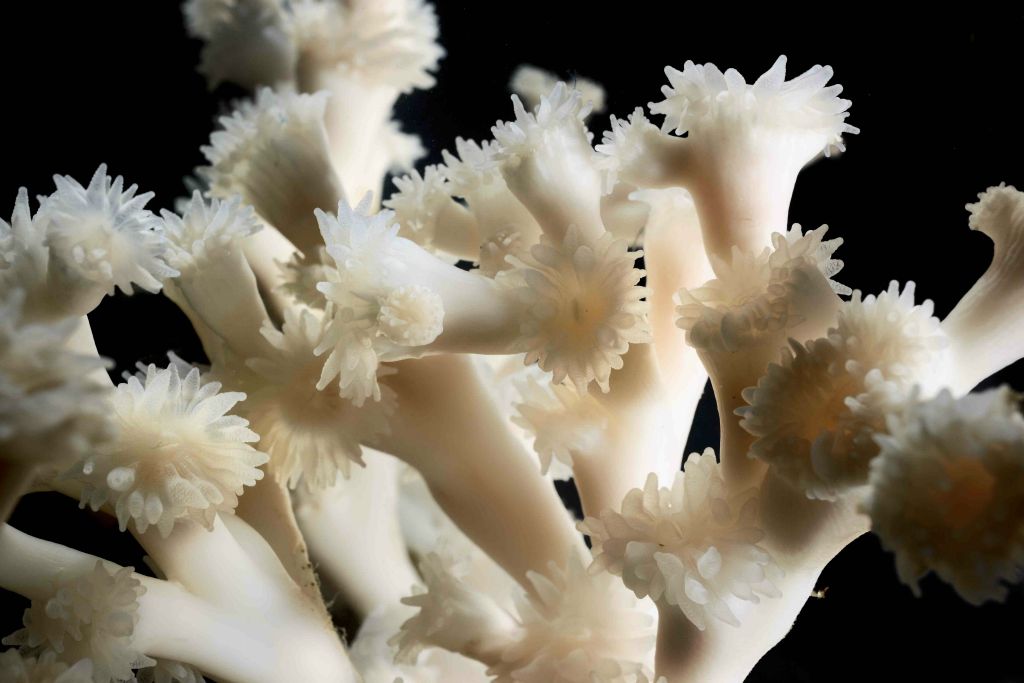
Lophelia pertusa, a cold water coral. (Solvin Zankl Geomar)
===========================================================
The massive project might be done for now, but it continues to serve as a model for other marine scientists.
Researchers in South America are already preparing to undertake a similar project in the southern Atlantic ocean, which is far less explored, and exploration is set to finish in 2023.
Who knows what treasures of the deep we'll find this time.
“Sedentary animal resembling moss”
So that’s where Biden is.
Nice post. Too bad most comments will be juvenile jokes.
So far, so good...................

Looks a bit like a Grouper.
Story of my life: always the Groupers, never the Groupies.
I found the article to be an interesting read and I applaud the discovery. However I found the obligatory propagandistic doom and gloom about global warming, ocean acidification, and other doom porn bullshit tiresome.
Here is a link to an article from the same website sciencedirect.com on the Caspian Sea that is entirely deceitful propaganda. it talks about the Caspian Sea drying out due to climate change and makes no mention of the fact that the Soviets damned the Volga River which provides 85% of the inflow and other countries bordering the Caspian Sea diverted the water to cultivate cotton: It May Be Too Late to Save The World's Largest Lake From Climate Change
Here is the truth from Natural History:
Fate of the Caspian Sea
Threatened by pollution and climate change, the future of Earth’s largest inland body of water is in the hands of five bordering nations
source: https://naturalhistorymag.com/features/112161/fate-of-the-caspian-sea
One consequence of the Caspian’s isolation from the world ocean is that its sea level—currently more than eighty seven and a half feet below the ocean’s mean sea level (MSL)—rises and falls depending largely on variations in rainfall in the watersheds of the Volga and other rivers. The changes in water level have affected the lives of nearby inhabitants since ancient times. In 1991, the Russian historian and geographer Lev Gumilev suggested, in The Millennium around the Caspian Sea, that severe encroachment of the sea played a significant role in the decline and fall of the Khazar khanate in the tenth century ad. The khanate, which had risen in the seventh century, controlled a huge territory to the northwest.
In more recent times, from the mid-nineteenth century to the late twentieth century, the Caspian Sea has varied by more than twelve feet in depth, between 83 and 95 feet below MSL. In the 1950s, a decline in the sea’s level was attributed to the damming of the Volga and other rivers and diversion of water for irrigation and other human uses. That prompted the first rigorous movement during the Soviet era to protect the Caspian, under the slogan, “Save the Caspian Sea!” By 1990, however, the situation had completely changed, and with the threat of a rising sea level, construction to protect some waterfront areas was initiated under a new motto: “Save us from the Caspian Sea!”
Read the article from sciencedirect.com first and then the one from Natural History and you will fond that the climate change lies in the first article are unsupportable.
For invertebrate sponge species, look no further than the House and Senate.
Any mermaids or a creature known as a Limpet?
https://www.youtube.com/watch?v=sGJqods0PYg
Disclaimer: Opinions posted on Free Republic are those of the individual posters and do not necessarily represent the opinion of Free Republic or its management. All materials posted herein are protected by copyright law and the exemption for fair use of copyrighted works.